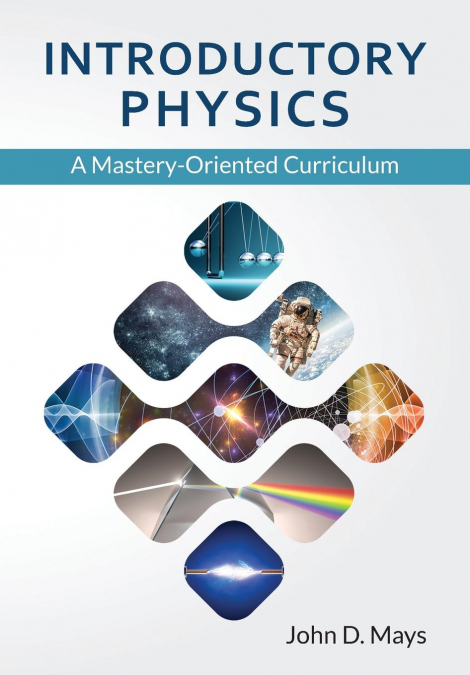
John Mays
Introductory Physics is the ideal text for a non-vector-based physics course. Full of rich, intelligent graphics, lucid prose and well-integrated discussions of the history of science, mathematics, and the role of faith in scientific investigation, this book is the first of its kind. This book was designed for grade-level freshmen, but it is also suitable for physics in the sophomore or junior year. In fact, optional chapters are added for the benefit of schools where physics occurs in 10th or 11th grade and students can move more quickly through the material. Mathematical problems are rigorous and challenging, but only assume that students are taking Algebra I concurrently. The text is not suitable for an upper-level vector/trig physics course, but NSM plans to publish a vector-based text to be ready for Fall 2015. One implementation strategy for schools is to use Introductory Physics for the grade-level science course, while steering honors-level students into an accelerated student track using our book Accelerated Studies in Physics and Chemistry (with accelerated science placement tied to accelerated placement in mathematics). Alternatively, the book may serve as the science text for all students in either eighth or ninth grade, depending on the preparation of the students in the school. As an aside, the “physics first” approach of placing physics in the 9th grade is a programing strategy that Novare Science and Math recommends because of the preparatory benefits that physics has for the other sciences. Energy, work, heat transfer, the atomic model, for example, are concepts that the student will already have learned when a she or he enters chemistry or biology. Such a program lends itself especially well to a mastery-based science curriculum as concepts learned earlier are rehearsed and reinforced in the later courses. As with all NSM texts, Introductory Physics is written from the perspective of the historic Christian faith. Each chapter exercise and calculation problem is carefully designed to effect real science learning and assimilation. Resource materials support a mastery-oriented pedagogy. The history of science is placed front and center, not in a sidebar when it can be ignored. Student instructions for five complete laboratory experiments are included in the appendix